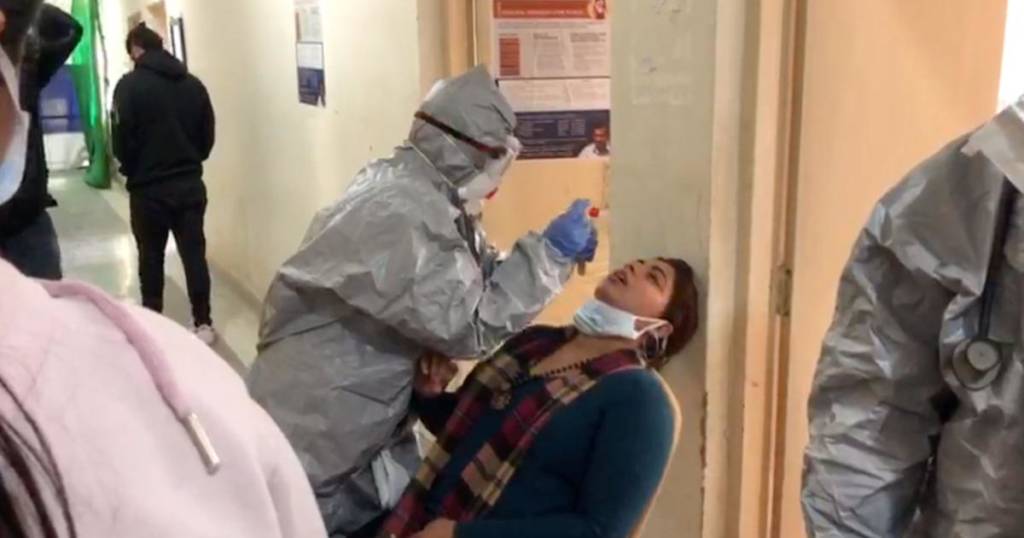In a major shot in the arm for India’s fight against the Coronavirus, the Indian Council of Medical Research (ICMR) has announced that India can carry out around 10,000 Coronavirus tests per day. The ICMR Director General Balram Bhargava has said, “We have conducted 15,000-17,000 tests so far. We have the capacity to conduct 10,000 tests per day; it means we can conduct 50,000-70,000 per week: Indian Council of Medical Research Director-General Balram Bhargava.”
Big News!
ICMR DG announced that now India has capacity to perform 50,000 to 70,.000 tests/week
‘India now has the capacity to perform 50k-70k tests/week alone in govt labs
Even now govt has run tests on approx 16000ppl
Big blow to LIBERALS waiting for modi to fail#covid_19india pic.twitter.com/5jjeT84LmK— Ritu #जिष्णु (@RituRathaur) March 22, 2020
This comes days after the government gave a go-ahead to the NABL-accredited private laboratories to conduct COVID-19 testing. The boost in India’s testing capacity is no mean achievement, given that testing Coronavirus is no ordinary test, rather a procedure called the Polymerase Chain Reaction (PCR) test has to be conducted, which though simple to create, is not easy to execute.
This puts India right at the top when it comes to conducting Coronavirus tests. In fact, India has far surpassed the testing capacity of the West compared to countries like the United States which can perform 7,000 tests per day, France which has the capacity to conduct around 2,500 tests per day and Germany. India has therefore surpassed the United States and the European powers when it comes to conducting Coronavirus tests.
From the very beginning, it was being wrongly insinuated that India doesn’t have sufficient testing capacity and therefore it is not conducting enough tests in order to plug the spread of the Wuhan virus. However, as opposed to the false accusations, India readied itself to scale up testing in the nick of time by ordering 10 lakh test kits from Germany, which currently has the capacity to conduct 12,000 tests on a daily basis and plans to increase it further to 25,000.
India was initially able to contain the Coronavirus outbreak with some exemplary and unprecedented measures. Accordingly, Coronavirus was kept blocked in Stage II for quite some time and community spread of the infection has been delayed substantially and now as the Coronavirus has started to pick pace, India is ready to tackle it armed with greater testing capacity.
Now, India will get into testing mode as there have been several cases of shockingly long incubation periods associated with the Wuhan virus across the world, including in Bhutan. And then there is the issue of asymptomatic patients passing on the infection further, for instance, the case of a Wuhan woman had tested negative and yet infected five patients in China.
Initially, the foreigner travellers were screened at the airports for Coronavirus symptoms but now it is clear that a number of asymptomatic Coronavirus victims can slip through due to the long incubation periods involved. Now, as India tries to break the chain of the spread of Coronavirus, scaling up the tests involved will help in isolating the infected and ensuring that human-to-human transmission is plugged.
https://twitter.com/shubh19822/status/1241788984809799680
This is where lockdowns are also going to play a crucial role by completing the massive testing effort that is going to unfold, as it would be critical in further breaking the chain of the Wuhan virus spread.
Those who test negative will have to understand that they cannot give up social distancing because testing negative once doesn’t mean that you cannot test positive again. Giving up on social distancing can defeat the very purpose of lockdowns and testing- isolating those infected and plugging the spread of the Coronavirus.
Case in point being South Korea, which took lead in testing Coronavirus and also managed in bringing down the spread of the virus, but is now battling a second wave of the infection. The way Coronavirus Pandemic has unfolded, giving up on social distancing could easily mean that you test negative today, but test positive only days later defeating the purpose of testing at war-footing. As India continues to ramp up its testing capacities, lockdowns are thus going to play a crucial role.
